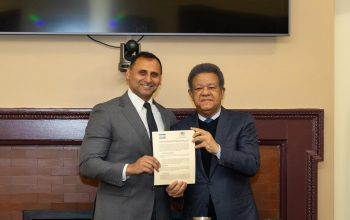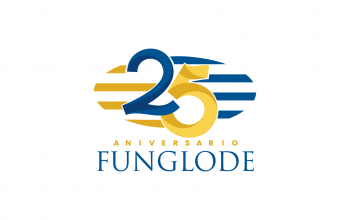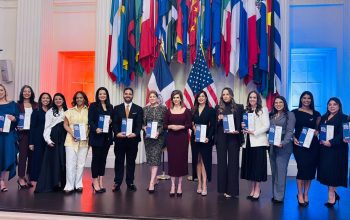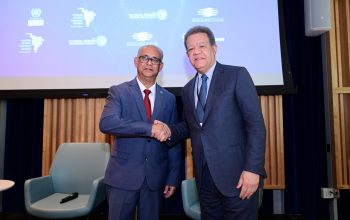news
Conference with Director of the Film and Television Archive at UCLA, Jan Christopher Horak
September 9, 2008
 The Global Media Arts Institute (GMAI), an initiative of Global Foundation for Democracy and Development (GFDD) and Fundación Global Democracia y Desarrollo (FUNGLODE), organized the conference, “Audiovisual Archives in the Modern World: Creation, Preservation and Historical
The Global Media Arts Institute (GMAI), an initiative of Global Foundation for Democracy and Development (GFDD) and Fundación Global Democracia y Desarrollo (FUNGLODE), organized the conference, “Audiovisual Archives in the Modern World: Creation, Preservation and Historical
Transcendence,” presented by Jan Christopher Horak, Director of the Film and Television Archive at the University of California, Los Angeles, September 4, 2008, at FUNGLODE Headquarters in Santo Domingo, Dominican Republic.
During the conference Horak discussed the history of film and television archiving in the United States, as well as
the challenges presently being confronted by audiovisual archivists. Among the topics explored include:
the challenges presently being confronted by audiovisual archivists. Among the topics explored include:
- Archives as a means of preserving culture and history
- Importance of digital information preservation and access
- History of audiovisual archiving in the United States
- Historical debate concerning which information should and should not be
preserved - Involvement of governments in establishing film and television archives
- Laws governing collecting
- Proper storage and humidity
control - Advantages and disadvantages of existing television and video formats
- Critical need for format migration
- Challenges presented by the rapid emergence
and disappearance of audiovisual formats - Advancements in technologies related to computer storage capacity
During his visit to the Dominican Republic, Jan Christopher Horak also met with Director of the Pedro Mir Library at
Universidad Autónoma Santo Domingo, Nicolás Made Serrano; Director of the Cinematheque, Luís Rafael González; Deputy Director of the National Archives, Luís Manuel Pucheo; Minister of Culture, José Rafael Lantigua; Vice-Minister of Culture, Alexander Santana; Film Commissioner for DINAC, Marlon Soto; andDirector Dominican National Radio and TV (CERTV), Hector Olivo, in order to develop a better understanding of the types o
Universidad Autónoma Santo Domingo, Nicolás Made Serrano; Director of the Cinematheque, Luís Rafael González; Deputy Director of the National Archives, Luís Manuel Pucheo; Minister of Culture, José Rafael Lantigua; Vice-Minister of Culture, Alexander Santana; Film Commissioner for DINAC, Marlon Soto; andDirector Dominican National Radio and TV (CERTV), Hector Olivo, in order to develop a better understanding of the types o






